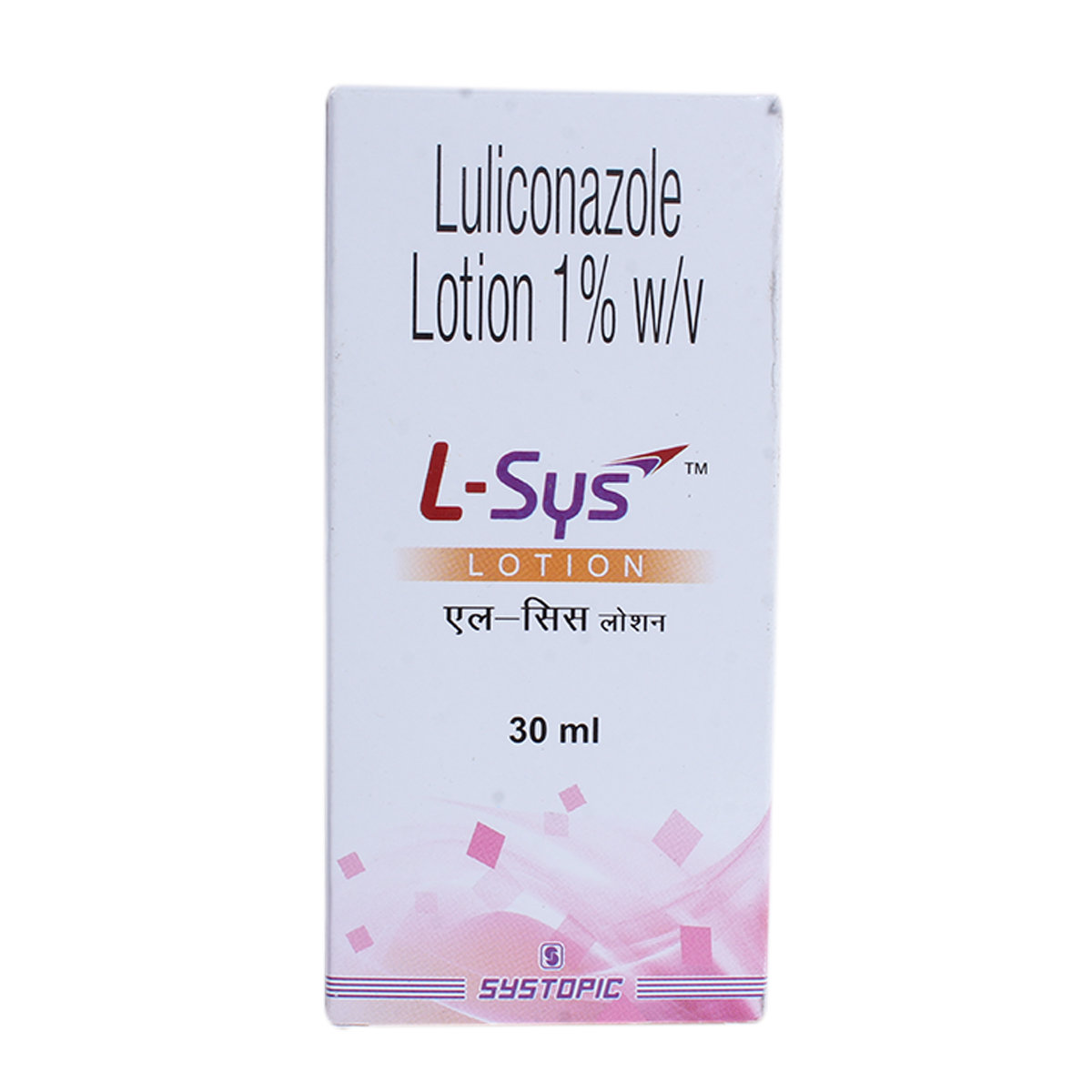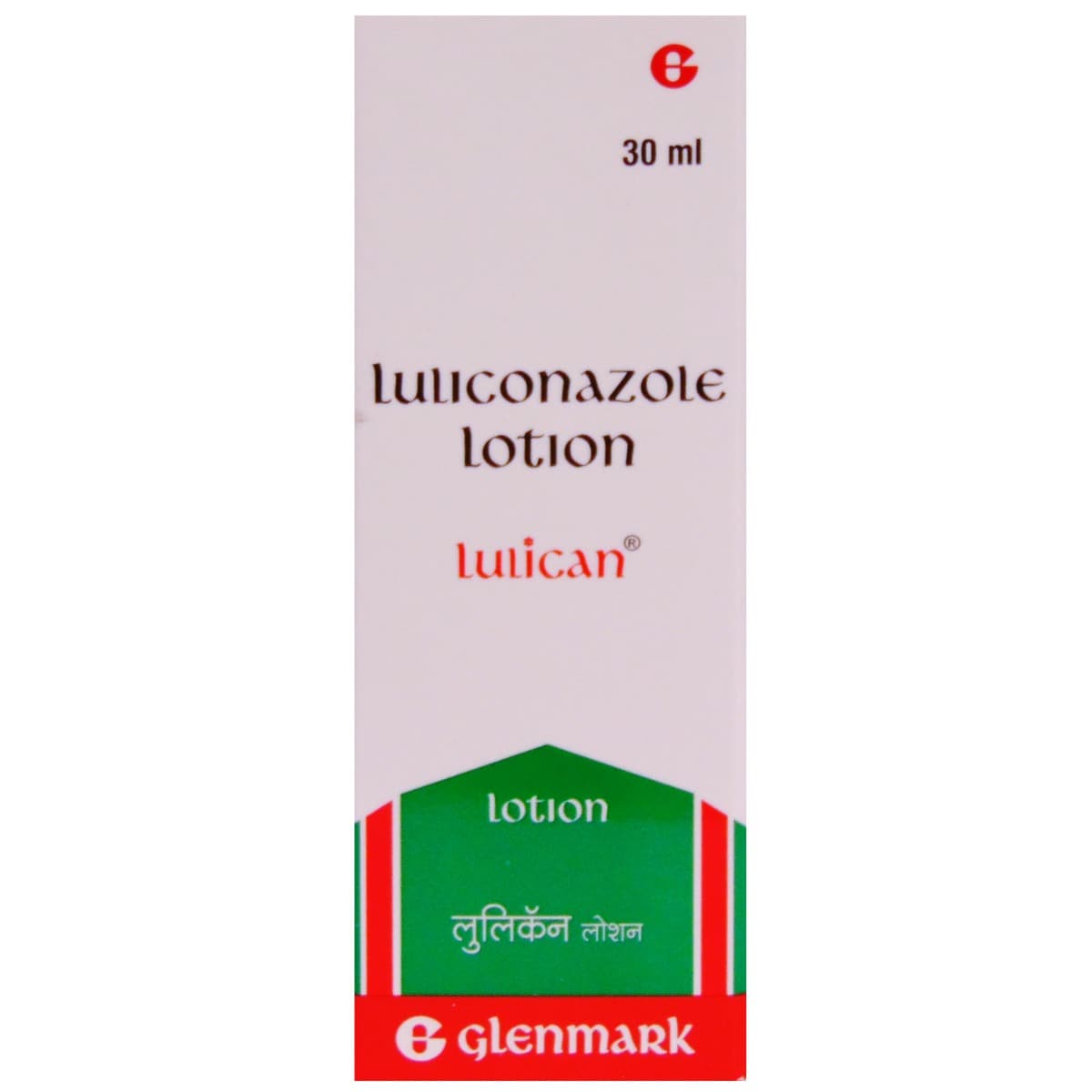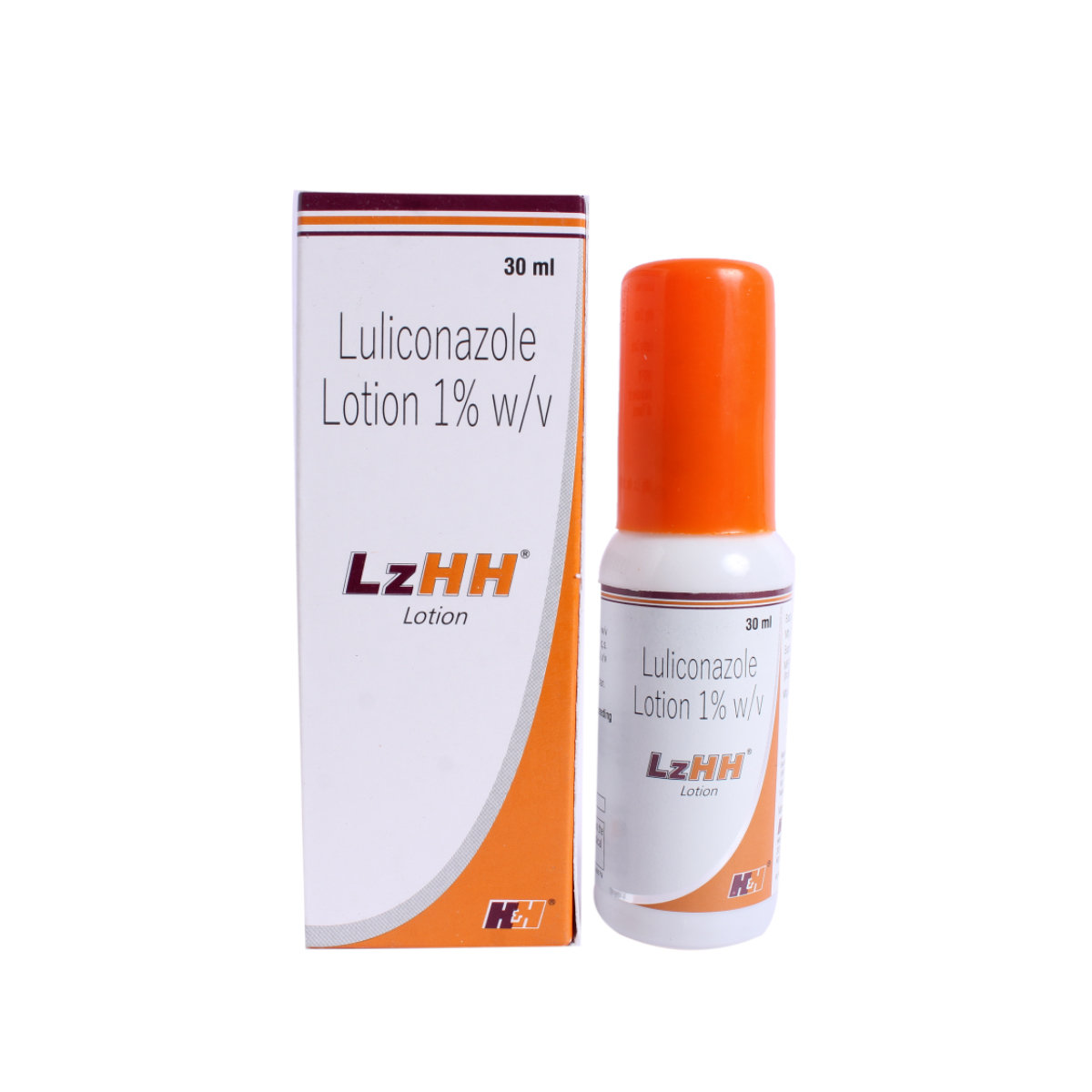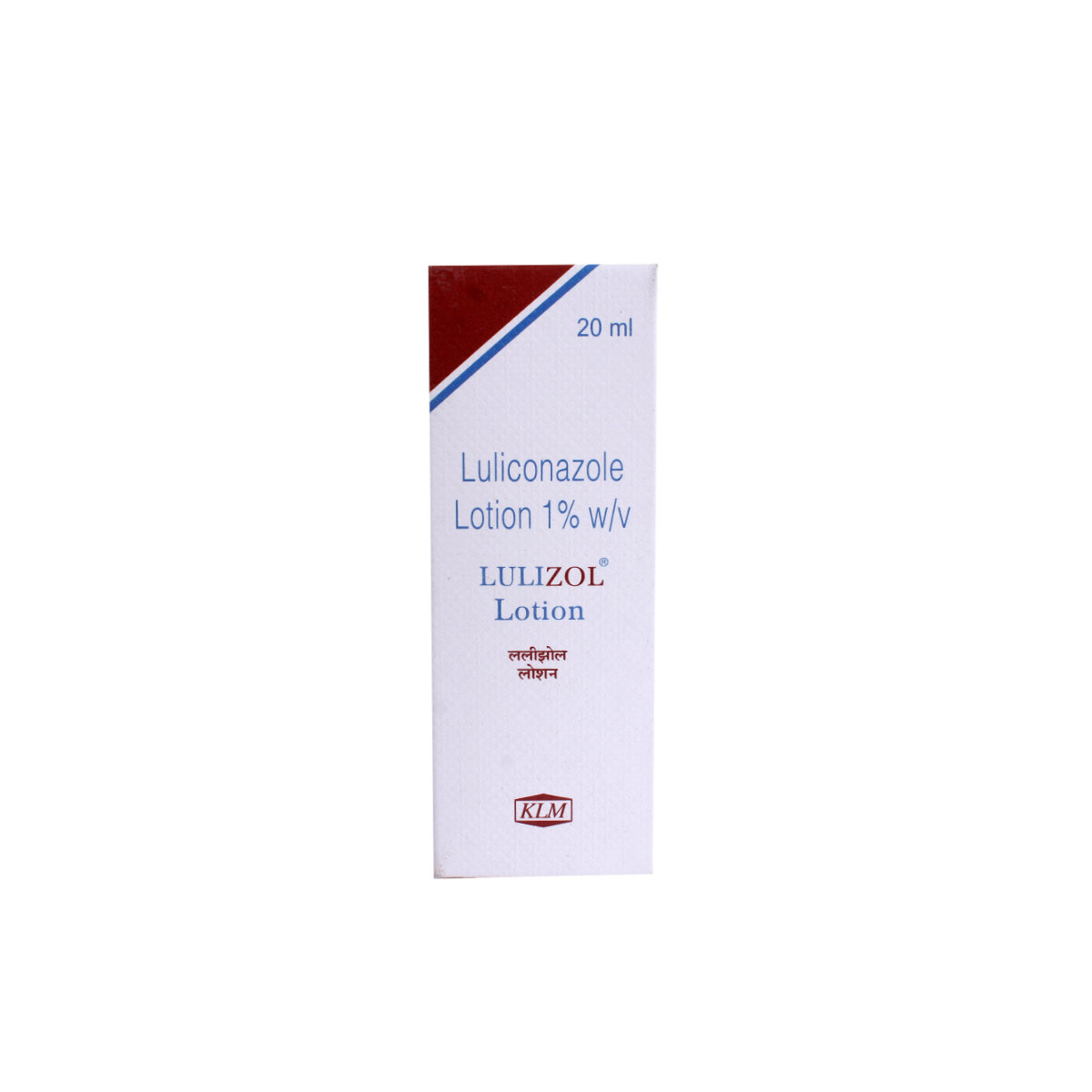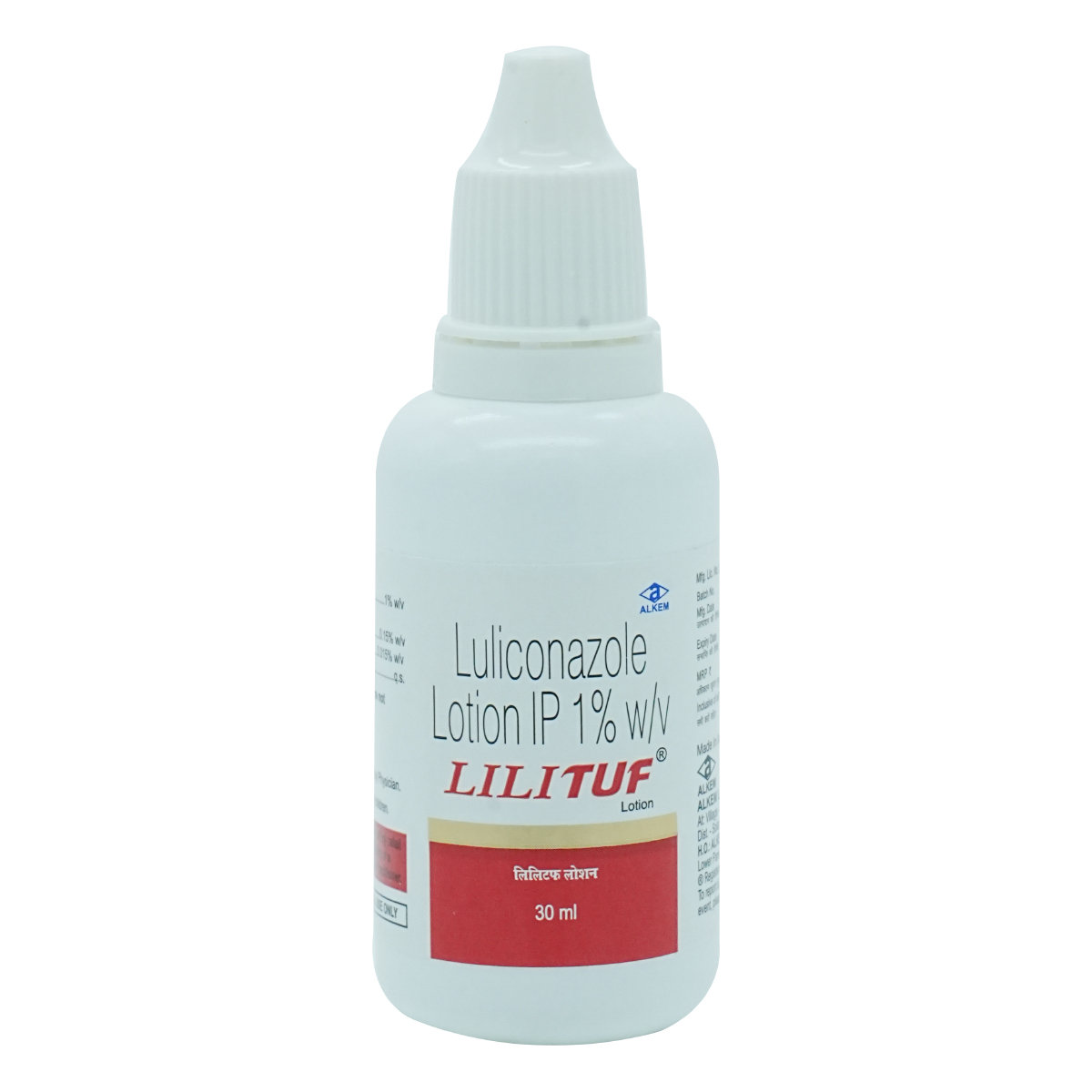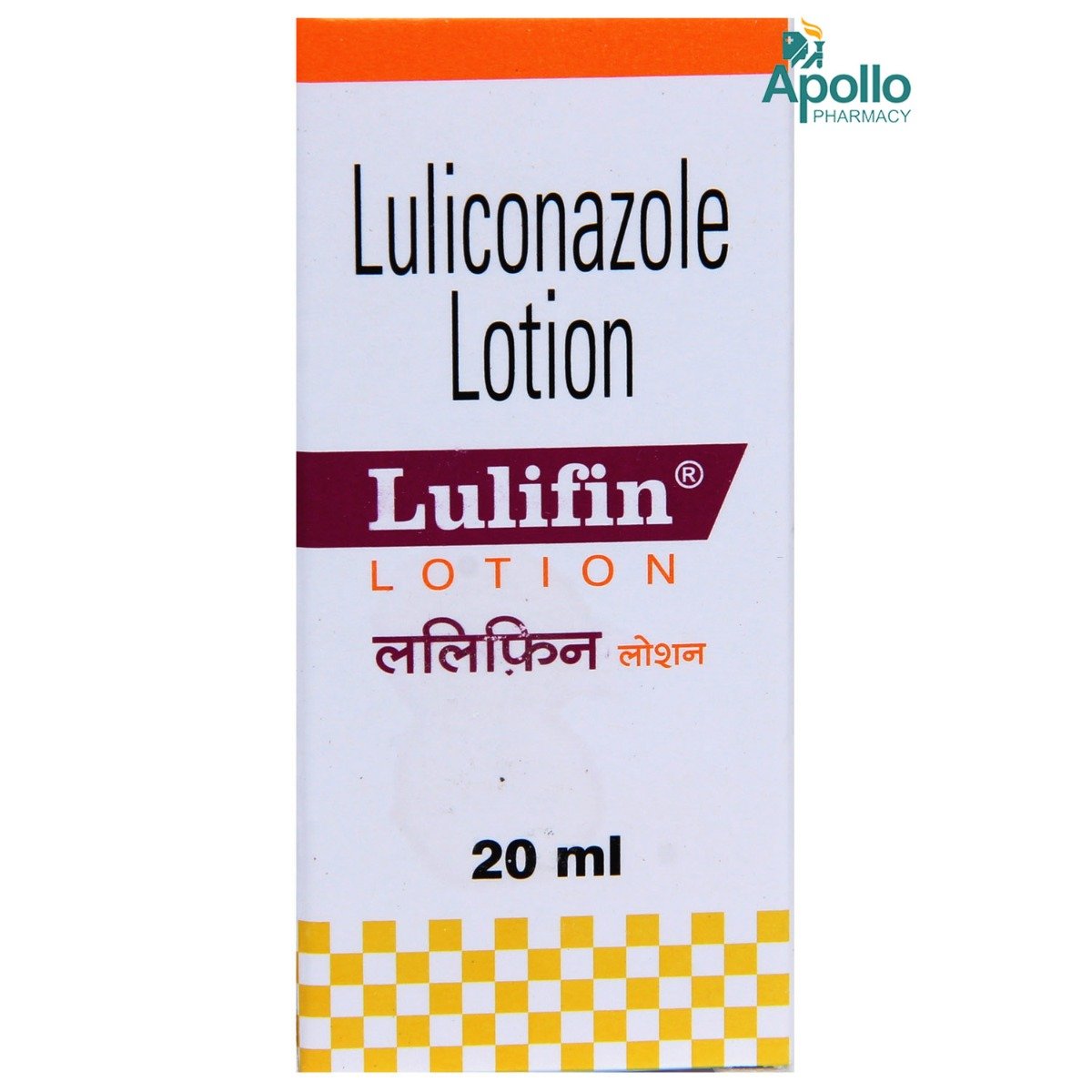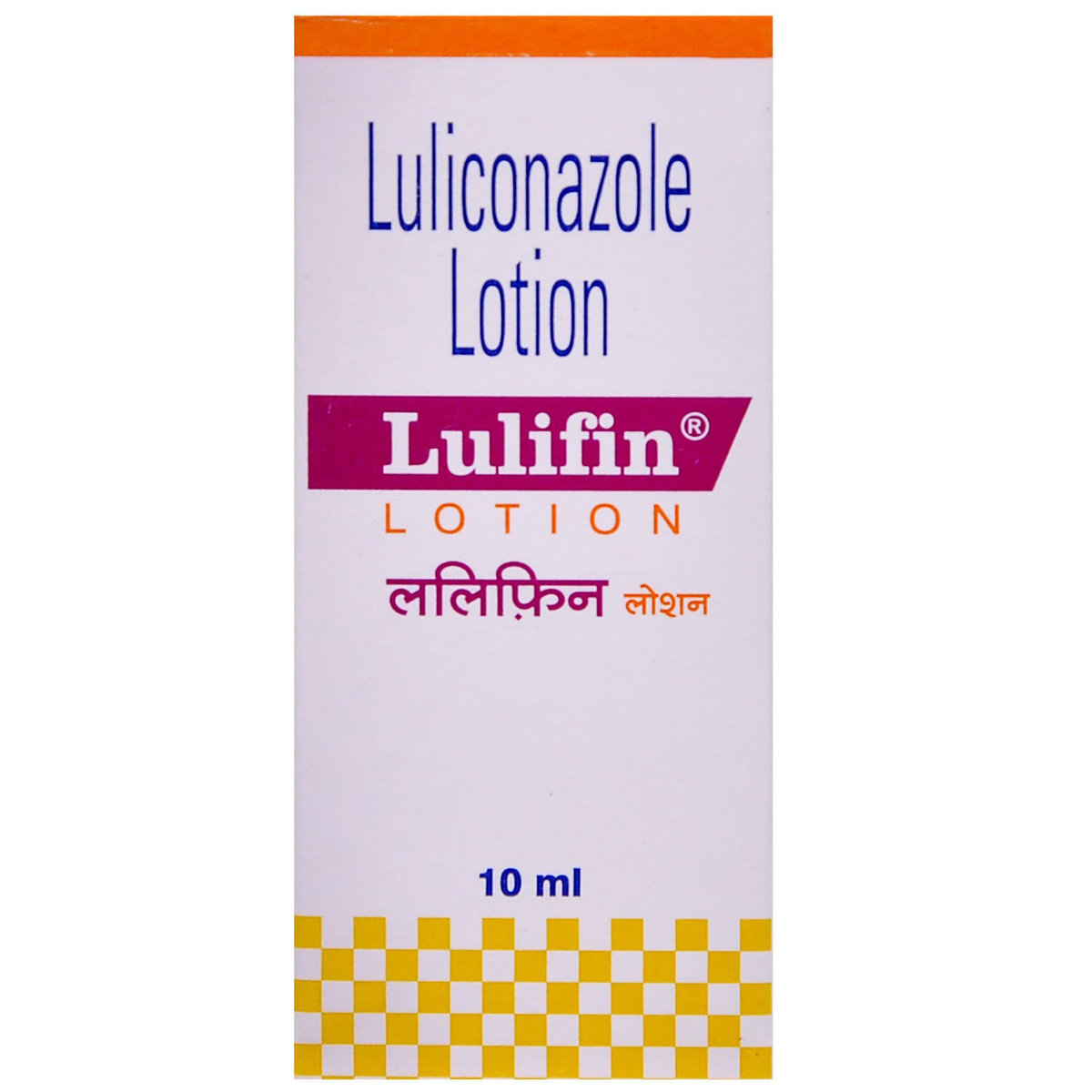Lovican Lotion 30 ml
MRP ₹182.5
(Inclusive of all Taxes)
₹27.4 Cashback (15%)
Provide Delivery Location
Online payment accepted
 Prescription drug
Prescription drugWhats That
Composition :
Manufacturer/Marketer :
Consume Type :
Expires on or after :
Return Policy :
About Lovican Lotion
Lovican Lotion belongs to a class of drugs called antifungals primarily used to treat fungal infections of the skin like ringworm, jock itch, and athlete’s foot. Fungal infection is a skin disease in which a fungus attacks the tissue and causes infection. Fungal infections may be contagious (spread from one person to another). Ringworm is a common fungal infection of the skin that is contagious and causes a rash resembling worm in a ring shape. Jock itch causes an itchy, red rash in the groin, buttocks, and inner thighs. Athlete’s foot usually starts between the toes and causes itching, burning, or stinging sensation due to a scaly rash.
Lovican Lotion contains Luliconazole, an antifungal that works by causing holes in the fungal cell membranes that are essential for their survival as they prevent the entry of unwanted substances into the cells and stop the leakage of cell contents. Thus, it kills fungi and clears the infection.
Lovican Lotion is only for external use. Take a small amount of Lovican Lotion on the finger and apply it as a thin layer on the clean and dry affected area. Avoid contact of Lovican Lotion with nose, mouth, eyes, or vagina. In case Lovican Lotion comes in contact with these areas accidentally, rinse with water thoroughly. Some people may experience redness, swelling, irritation, or burning sensation of skin at the site of application. Most of these side effects of Lovican Lotion do not require medical attention and gradually resolve over time. However, if the side effects persist or worsen, please consult your doctor.
If you are allergic to Lovican Lotion or any other medicines, please tell your doctor. If you are pregnant or a nursing mother, it is advised to consult a doctor before using Lovican Lotion. Lovican Lotion is not recommended for children below 12 years to treat athlete’s foot or jock itch but may be used in children above 2 years to treat ringworm if prescribed by a doctor. If you have any allergies to preservatives, foods, or dyes, inform your doctor before taking Lovican Lotion.
Uses of Lovican Lotion
Directions for Use
Key Benefits
Lovican Lotion is an antifungal that is primarily used to treat fungal infections of the skin such as ringworm, jock itch and athlete’s foot. The fungal cell membranes are essential for their survival as they prevent the entry of unwanted substances into the cells and stops the leakage of cell contents. Lovican Lotion causes holes in the fungal cell membranes and kills fungi. Thereby, clears fungal infection and provides relief from cracking, burning, scaling and itching of the skin caused due to infections.
Storage
Drug Warnings
If you are allergic to Lovican Lotion or any other medicines, please tell your doctor. Lovican Lotion is not recommended for children below 12 years to treat athlete’s foot or jock itch but may be used in children above 2 years to treat ringworm if prescribed by a doctor. Avoid contact of Lovican Lotion with nose, mouth, or eyes as it may cause irritation. In case Lovican Lotion comes in contact with these areas accidentally, rinse with water thoroughly. If you are pregnant or a nursing mother, it is advised to consult a doctor before using Lovican Lotion. If you have any allergies to preservatives, foods, or dyes, inform your doctor before taking Lovican Lotion.
Diet & Lifestyle Advise
- Regularly change your socks and wash your feet. Avoid shoes that make your feet sweaty and hot.
- In wet places such as changing rooms and gym showers, don’t walk barefoot to prevent fungal infections.
- Do not scratch the affected area of the skin as it can spread the infection to other body parts.
- Avoid sharing towels, combs, bedsheets, shoes, or socks with others.
- Wash your bed sheets and towels regularly.
Side Effects of Lovican Lotion
- Redness, swelling, irritation or burning sensation of skin at the site of application.
Habit Forming
Therapeutic Class
All Substitutes & Brand Comparisons
RX
L-Sys Lotion 60 ml
Systopic Laboratories Pvt Ltd
₹271.5
(₹4.07/ 1ml)
25% CHEAPERRX
Logifin-CL Creamy Lotion 50 ml
Canixa Life Sciences Pvt Ltd
₹234
(₹4.21/ 1ml)
23% CHEAPERRX
Lulibet Lotion 50 ml
Intas Pharmaceuticals Ltd
₹327
(₹5.89/ 1ml)
7% COSTLIER
Author Details
We provide you with authentic, trustworthy and relevant information
FAQs
Special Advise
- Before applying Lovican Lotion, clean and dry the affected area.
- Avoid contact of Lovican Lotion with nose, mouth or eyes. In case Lovican Lotion comes in contact with these areas accidentally, rinse with water thoroughly.
Disease/Condition Glossary
Fungal infection: It is a skin disease in which a fungus attacks the tissue and causes infection. Fungal infections may be contagious (spread from one person to another). Ringworm is a common fungal infection of the skin or scalp that is contagious and causes a rash resembling a worm in a ring shape. Jock itch (also known as tinea cruris) is a fungal infection of the skin that causes an itchy, red rash in warm and moist areas of the body such as the groin, buttocks, and inner thighs. Athlete’s foot (also known as tinea pedis) is a fungal infection that usually starts between the toes, especially in people who have extremely sweaty feet and wear tight-fitting shoes. It occurs most commonly in athletes. It causes itching, burning, or stinging sensation due to a scaly rash.

Have a query?
Alcohol
Safe if prescribed
Interaction of alcohol with Lovican Lotion is unknown. Please consult a doctor before consuming alcohol with Lovican Lotion.
Pregnancy
Consult your doctor
Lovican Lotion is a Category C pregnancy drug and safety is unknown. Please consult a doctor if you are pregnant or planning for pregnancy.
Breast Feeding
Consult your doctor
It is unknown whether Lovican Lotion is excreted in human milk. Please consult a doctor before using Lovican Lotion while breastfeeding.
Driving
Safe if prescribed
Lovican Lotion usually does not affect your ability to drive or operate machinery.
Liver
Consult your doctor
If you have any concerns regarding the use of Lovican Lotion in patients with kidney problems, please consult a doctor.
Kidney
Consult your doctor
If you have any concerns regarding the use of Lovican Lotion in patients with kidney problems, please consult a doctor.
Children
Safe if prescribed
Lovican Lotion may be used in children above 2 years to treat ringworm if prescribed by a doctor.







